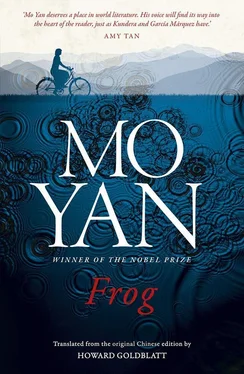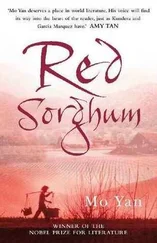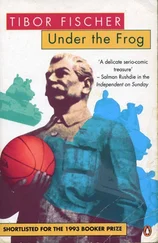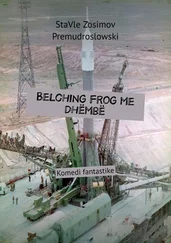I told Gugu I’d read something like that in The Scholars . The what? she asked. I told her it was a famous classical novel. She glared at me. If things like that happen even in classical novels, that proves it was true.
Now that he was fully recovered, my great-uncle made preparations to rejoin his troops on Mount Taihang. Son, his mother said, I can’t live much longer. Wait to go till after my funeral. And there was another matter his wife found hard to bring up, that was left to Gugu. Father, she said, Mother doesn’t mind if you go, but she’d like you to leave me a little brother before you do.
Soldiers from the eastern Shandong military district of the Eighth Route Army showed up at Great-Uncle’s house to recruit him, as a follower of Norman Bethune, reminding him of his fine reputation. I already belong to the Shanxi-Chaha’er-Hebei arm, he said. But we’re Communists, just like they are, the Shandong representative said. It doesn’t matter where you work. We really need someone like you, Old Wan, and we’ll do whatever is necessary to keep you here. Commander Xu said if an eight-man sedan chair won’t do the trick, he’d hogtie him and take him under escort to a banquet in his honour. That is how Great-Uncle wound up staying home in Shandong, where he founded the Xihai Underground Hospital.
The hospital had underground passages that linked the wards and other rooms, including a sterilisation room, a treatment room, an operating theatre, and a recovery room, all of which remain in Zhu Family Village, which is part of Yutong Township in the Laizhou Municipal area, and are still well maintained. An old woman of eighty-eight, Wang Xiulan by name, who was Great-Uncle’s nurse back then, is still alive and well. Several of the recovery rooms lead directly to a well. One day back then, a young woman went to the well for water, and was surprised when her bucket stopped before reaching the bottom. She looked down, and there in a hollow in a wall, a young, wounded Eighth Route soldier looked up and made a face at her.
Talk of Great-Uncle’s superb medical skills quickly made the rounds. It was he who removed the shrapnel lodged near Commander Xu’s scapula. He also managed to save both Political Commissar Li’s wife and her child during a difficult birth. Word had even spread to Pingdu city, which was under the command of an officer named Sugitani, whose warhorse had stepped on a land mine during a mop-up operation. He had taken off on foot, leaving the horse behind. Great-Uncle performed surgery on the horse, and after it recovered it became the mount for Regimental Commander Xia. But before long, the horse was so homesick it bit through its tether and ran back to Pingdu. Sugitani was so happy to see his horse again, with its wounds healed, he told his Chinese collaborators to find out what had happened. He learned that the Eighth Route Army had established a hospital right under his nose, and that the medical skills of its director, Wan Liufu, were responsible for saving the life of his horse. Commander Sugitani, who himself had received medical training, was impressed by Great-Uncle’s skills and summoned him to surrender. To do so, Sugitani adopted a scheme from the classical novel Three Kingdoms , which was to secretly infiltrate our hometown to kidnap my great-grandmother, my great-aunt, and my aunt, and take them back to Pingdu, where he sent a letter to Great-Uncle, telling him they were being held hostage.
After reading Sugitani’s letter, my great-uncle, a dedicated Communist, wadded it up and threw it away. The hospital commissar retrieved the letter and delivered it to district headquarters. Commander Xu and Commissar Li wrote a joint letter to Sugitani, denouncing him as a petty man and threatening to throw the entire weight of the Shandong Eighth Route Army against him if he harmed a hair of any of the three members of Wan Liufu’s family.
Gugu said that she and her mother and grandmother were well treated during the three months they spent in Pingdu. According to her, Sugitani was a fair-skinned young man who wore white-framed glasses and had a moustache. Quiet and bookish, he spoke fluent Chinese. He called my great-grandmother Aunt, called my grandmother Sister-in-law, and called Gugu Niece. She did not have a bad opinion of him. Of course, she only said that privately to members of the family. To others she said that all three were victims of Japanese brutality, subjected to coercion and bribery, though they remained steadfast.
Sensei, I could talk about my great-uncle for three days and nights and never exhaust the subject. We’ll continue this some other day, but I must tell you about how he died. Gugu said he was gassed while performing surgery in the underground hospital. That is how his death is listed in historical documents prepared by the county consultative congress, but a private source claimed that he rode his mule into Pingdu with eight hand grenades on his belt, determined to single-handedly rescue his wife, his daughter and his ageing mother, but unfortunately struck a land mine placed by the Zhao Family Trench militiamen. The source of this account was Xiao Shangchun (Upper Lip), a stretcher-bearer for the Xihai Hospital. A quirky individual, Xiao served as the commune granary watchman after 1949, where he invented a pesticide that was a potent rat poison, for which he was extolled in the local newspaper, which changed his name from the chun that meant ‘lip’ to the one that meant ‘purity’. Later it was discovered that the main ingredient of his rat poison was a banned highly toxic pesticide. He and Gugu were bitter enemies, which makes his account highly unreliable. He once said to me that my great-uncle disobeyed orders by neglecting his patients in favour of playing the hero, and that he’d fortified himself before setting out by drinking two jin of potato liquor, winding up so drunk that he stumbled on one of their own land mines. A gloating Xiao Shangchun flashed a yellow-toothed grin as he continued: Your great-uncle and the mule he was riding were blown to bits, both carried back to the hospital in boxes, bones and hooves all mixed up, and dumped into a coffin. Not a bad coffin, though, one confiscated from a wealthy family in Lan Village.
When I repeated his story to Gugu, her eyes grew wide and she gnashed her silver teeth. One of these days, she said, I’m going to cut that bastard’s balls off!
Boy, she said staunchly, you can forget about everything else, but the one thing you must believe is that your great-uncle was a hero of the resistance and a revolutionary martyr! His body rests in a mausoleum on Martyrs Hill, his scalpel and leather shoes are part of the display in Martyrs Hall. They are English shoes, bequeathed to him by Norman Bethune on his deathbed.
Sensei, I rushed through the story of my great-uncle so I could take my time telling Gugu’s story.
She was born on 13 June 1937, the fifth day of the fifth lunar month, which is Duanyang, the day of the Dragon Boat Festival. They called her Duanyang until she started school, and was then called Wan Xin (Heart). Great-Uncle named her, showing respect for local tradition while investing her name with a message. Not long after Great-Uncle’s death, his mother died of natural causes in Chengdu. Members of the Shandong military district launched a large-scale rescue mission to free Gugu and her mother from their captivity, and once they were in the liberated zone, Gugu was enrolled in the Resistance elementary school and her mother was sent to a factory to make soles for cloth shoes. After Liberation, the future for descendants of martyrs like Gugu could not have been brighter, but her mother hated the idea of leaving her hometown and Gugu hated the idea of leaving her. Officials at the county level asked her what she would like to do; when she said she’d like to carry on her father’s work, she was admitted to the prefectural medical school. She graduated at the age of sixteen and was assigned to the township health centre, where she undertook a training course for modern birthing methods organised by the county health bureau. Gugu forged an unbreakable bond with the sacred work of obstetrics. According to her calculations, from the fourth day of the fourth month of 1953, when she attended her first birth, till the spring of last year, she delivered around ten thousand babies, counting two as one when working with someone else. She told you this in person. I assumed she’d inflated the number somewhat, but there had to have been seven or eight thousand at least. She had seven interns, one of whom she called ‘Little Lion’, a young woman whose hair was never combed, who had a flat nose, a square mouth, and a face full of zits. She was so devoted to Gugu that if she’d been told to kill someone, she’d have picked up a knife and done it without asking why.
Читать дальше












